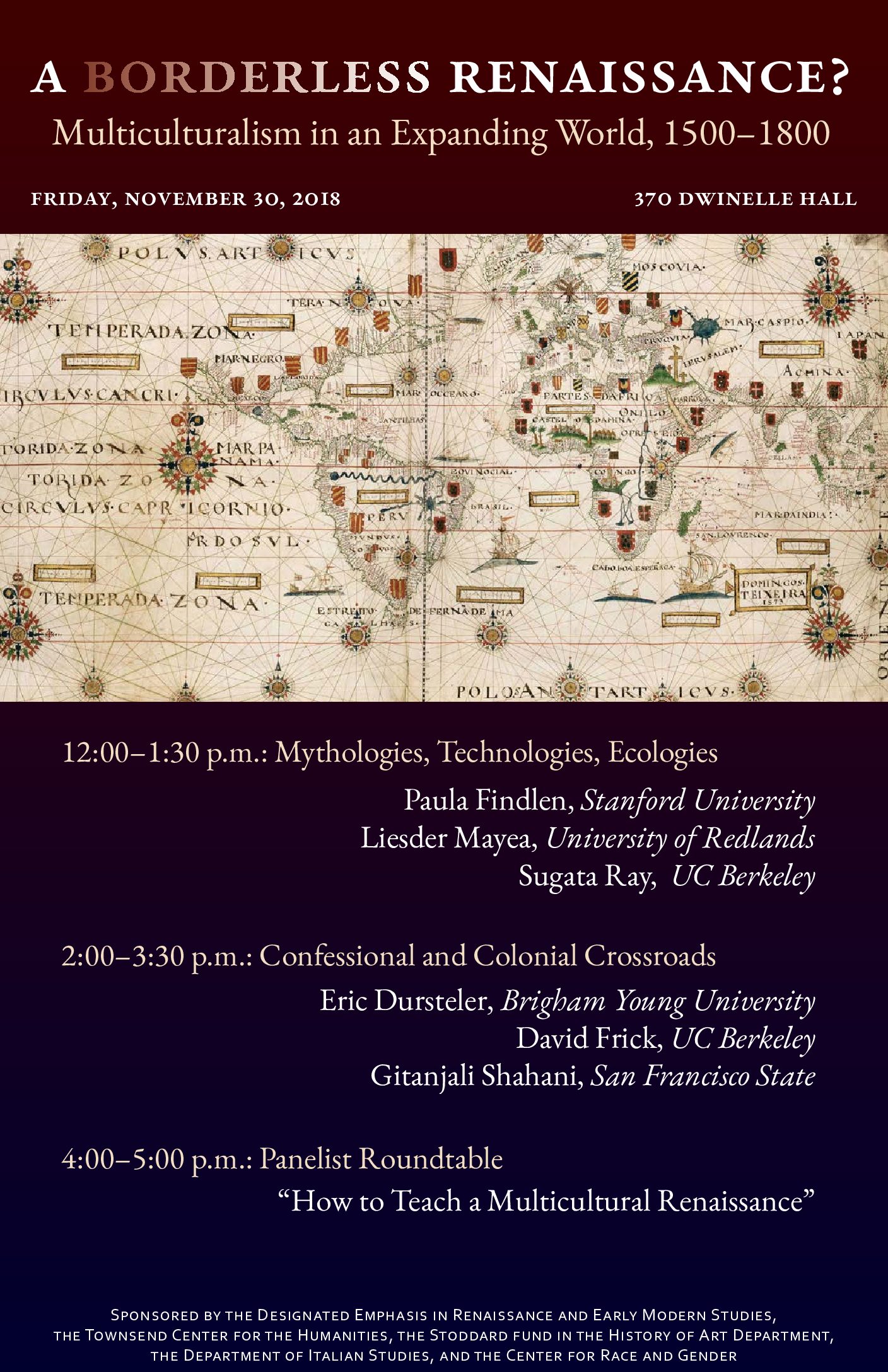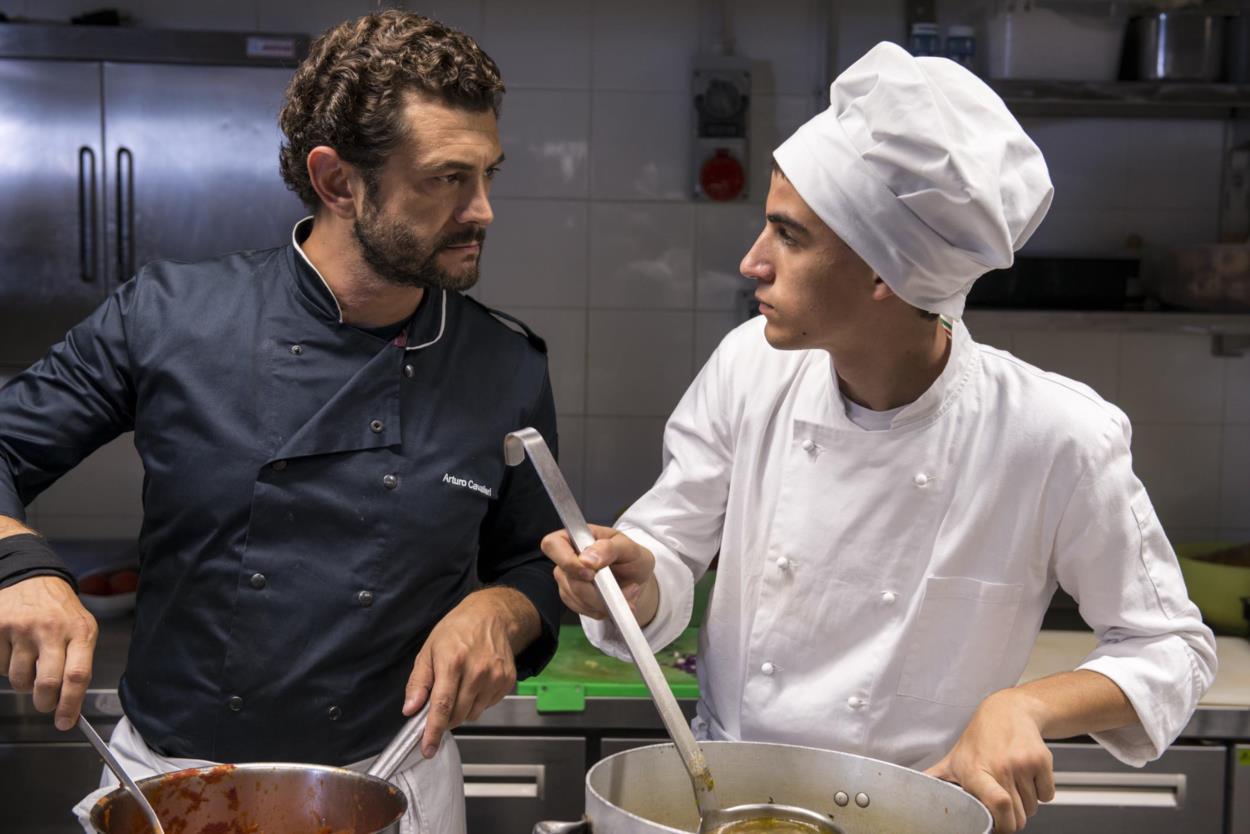
A Borderless Renaissance? Multiculturalism in an Expanding World, 1500-1800
This one-day seminar-style conference seeks to understand, critique, and interpret various ways in which multiculturalism and cultural exchange facilitated the creation of a “borderless” global Renaissance. Our discussions will explore instances and effects of boundary-crossing and borderlessness across genre and form; expressions of gender, racial, and ethnic identity; religious and cultural communities; legal and institutional norms; and geographical or geopolitical spaces.
The two panels feature distinguished speakers across multiple disciplines who will briefly introduce a question and/or interpretation regarding a multicultural Renaissance. The panels aim to generate group discussion: to that end, after each panelist introduces h/er point of entry, the panel’s respondent will draw out major themes to engage the audience and panelists in conversation.
The conference’s round table will address questions of methodology and pedagogy concerning how to bring multiculturalism and cultural exchange into the Renaissance classroom. These questions will include: how can we present Renaissance cultural exchange in an effective way that respects both historical specificity and global historical narrative(s)? How can digital technologies enhance the way we teach texts, discourses, and histories of multiculturalism? How and through what methodological means can we engage with interdisciplinarity in teaching this subject? How can instructors encourage students in critical conversation that bridges these cross-cultural encounters of the Renaissance and today’s “culture wars”?
Paula Findlen, Stanford University
Liesder Mayea, University of Redlands
Sugata Ray, UC Berkeley
2:00-3:30 p.m.: Confessional and Colonial Crossroads
Eric Dursteler, Brigham Young University
David Frick, UC Berkeley
Gitanjali Shahani, San Francisco State
4:00-5:00 p.m.: Panelist Roundtable
How to Teach a Multicultural Renaissance
